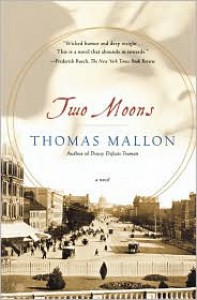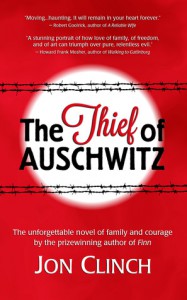Supernormal: Science, Yoga, and the Evidence for Extraordinary Psychic Abilities
 If you're looking for factual, reasoned information about psi research, I'd recommend this book. Not the usual New Age woo-woo stuff. Well-written, though the meta-analysis gets to be a bit much after awhile. Great bibliography in the back.
If you're looking for factual, reasoned information about psi research, I'd recommend this book. Not the usual New Age woo-woo stuff. Well-written, though the meta-analysis gets to be a bit much after awhile. Great bibliography in the back.
The Autobiography of Mrs. Tom Thumb
 The novel is very episodic, following the life of Lavinia Bump in chronological order. It lacks suspense, going from one incident on to the next. The Victorianesque first-person narrator gets in her own way much of the time, interrupting conversations to add comments to the reader, most of which are not needed. Between the lack of tension and the constant speed bumps in the few dramatized scenes, the work is slow going. The relationship between Lavinia and P.T. Barnum is the best part of the book: it comes to life, while most of the book is narrative and "told," as opposed to "shown." Readers interested in American history will enjoy the wealth of information about this period.
The novel is very episodic, following the life of Lavinia Bump in chronological order. It lacks suspense, going from one incident on to the next. The Victorianesque first-person narrator gets in her own way much of the time, interrupting conversations to add comments to the reader, most of which are not needed. Between the lack of tension and the constant speed bumps in the few dramatized scenes, the work is slow going. The relationship between Lavinia and P.T. Barnum is the best part of the book: it comes to life, while most of the book is narrative and "told," as opposed to "shown." Readers interested in American history will enjoy the wealth of information about this period.
Two Moons: A Novel
 Mallon seems to be a plot-challenged author. There was little or no sense of suspense, nothing pulling me along. The same scenes between the protagonists repeating over and over, oh so slowly advancing towards some kind of resolution that I just could not bring myself to give a hoot about. Despite my love of history and astronomy, I tossed it halfway through. "Henry and Clara" was better.
Mallon seems to be a plot-challenged author. There was little or no sense of suspense, nothing pulling me along. The same scenes between the protagonists repeating over and over, oh so slowly advancing towards some kind of resolution that I just could not bring myself to give a hoot about. Despite my love of history and astronomy, I tossed it halfway through. "Henry and Clara" was better.
The Thief of Auschwitz
 Extremely well-written, a joy to read despite the bleak subject. I really cared about Max and his parents. Even the Nazis were portrayed sympathetically, or at least they were not just evil cardboard cutouts. The only question I have unanswered is: the first line states that Auschwitz took one year of his life, and he gave it another four of his own free will -- what does that mean? The book depicts the year mentioned, but not the other four. My wife read this and didn't get that either.
Extremely well-written, a joy to read despite the bleak subject. I really cared about Max and his parents. Even the Nazis were portrayed sympathetically, or at least they were not just evil cardboard cutouts. The only question I have unanswered is: the first line states that Auschwitz took one year of his life, and he gave it another four of his own free will -- what does that mean? The book depicts the year mentioned, but not the other four. My wife read this and didn't get that either. Anyway, a minor point, and really a wonderful book. A shame a major publisher hasn't picked this up.




